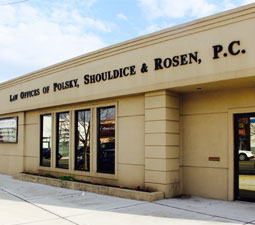
When dealing with the aftermath of a workplace injury, appealing a denied Workers' Compensation claim can feel overwhelming. Many people find themselves unsure of what steps to take next or how to improve their chances of a successful appeal. In this post, we'll address some of the most common questions we receive about appealing denied claims. This information is intended to help clarify the process and provide practical guidance for moving forward. For those in need of specific legal advice, consulting with a New York Workers' Compensation lawyer can be an important step toward protecting your rights.
What Should We Do If Our Workers' Compensation Claim Is Denied?
If your claim has been denied, it's crucial to act quickly. Start by reviewing the denial letter, which should provide a reason for the decision. This will help us determine the best approach for the appeal. Often, denials are based on issues like incomplete documentation, missed deadlines, or disputes over the cause of the injury. Gathering all relevant medical records and documentation is essential. Once we have this information, we can file a formal appeal. It's important to remember that there are strict deadlines for appealing, so time is of the essence.
How Long Do We Have To File An Appeal After A Denial?
The timeframe for filing an appeal can vary depending on the state, but typically, you have a limited window of time to act—usually between 30 to 90 days from the date of the denial. Missing this deadline can result in losing your right to appeal altogether. To avoid this, we recommend beginning the appeal process as soon as possible after receiving the denial letter. This allows us ample time to gather the necessary documentation and build a strong case for your appeal.
What Are The Most Common Reasons For A Workers' Compensation Claim To Be Denied?
There are several reasons why a Workers' Compensation claim might be denied. One common reason is a lack of evidence linking the injury to the workplace. For example, if there is insufficient documentation or if the employer disputes the claim, it can lead to a denial. Other reasons might include missing deadlines for reporting the injury or filing the claim, or if the injury is deemed not serious enough to warrant benefits. When addressing the issue of the appeal, understanding the specific reason for your denial is key.
Can We Still Appeal If We Missed The Deadline To Report The Injury?
Missing the deadline to report your injury to your employer can complicate your case, but it doesn't necessarily mean you're out of options. In some cases, there may be valid reasons for the delay, such as not realizing the severity of the injury immediately. During the appeal, we can present evidence to explain the delay and demonstrate that the injury is still work-related. While it's always best to report injuries as soon as possible, an appeal can still be successful with the right approach.
What Happens During A Workers' Compensation Appeal Hearing?
During an appeal hearing, we will present evidence to support your claim and argue why the denial should be overturned. This could include medical records, witness testimonies, and other relevant documentation. The hearing is typically held before an administrative law judge, who will review the evidence and make a decision. It's a more formal process than the initial claim submission, and having legal representation can greatly increase your chances of success. Preparing thoroughly and presenting a strong case is critical to achieving a favorable outcome.
Getting Help With Your Workers' Compensation Appeal
A clear understanding of the process and careful attention to detail is required when appealing a denied Workers' Compensation claim. At Polsky, Shouldice & Rosen, P.C., we are committed to helping our clients manage this challenging time and fight for the benefits they deserve. If you're facing a denial, we encourage you to contact us to discuss your options and how we can assist you in moving forward. For those seeking legal assistance, working with a legal professional can be a crucial step in securing the benefits you need. Don't hesitate to reach out to us for a consultation and let us help you take the next steps in your case.


